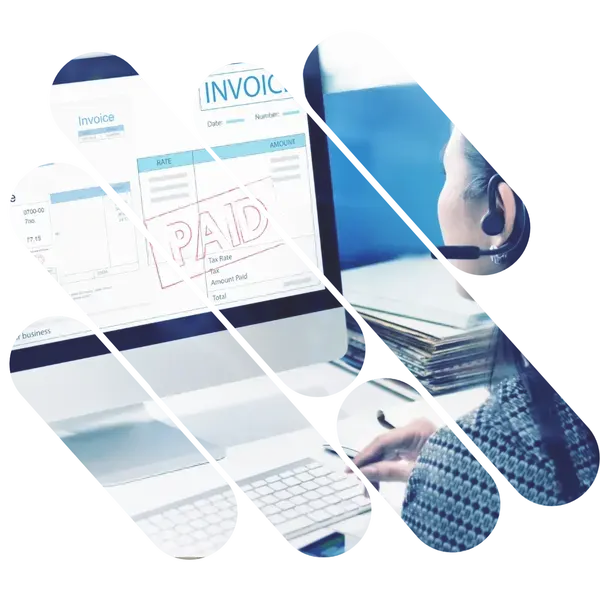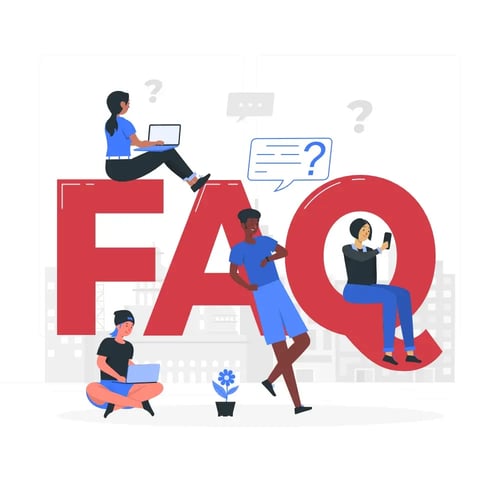Make an appointment
Mandatory e-invoicing in Estonia
Estonia is one of the most digitized countries in Europe and has been using mandatory e-invoicing in B2G transactions for several years now.
As of 2017, all invoices to the public administration must be issued in a structured XML format compliant with the European standard EN 16931.
In the B2B sector, e-invoicing is not yet mandatory, but the government is encouraging companies to use it, and more and more companies are introducing it voluntarily, using national standards and the Peppol network.
In preparation for the EU 's "VAT in the Digital Age" (ViDA) package, Estonia plans to gradually extend e-invoicing to B2B transactions as well, in order to facilitate settlement and increase control over VAT flows.

Guide to e-invoicing
Navigating the regulations for the National e-Invoicing System can be a challenge, but with the right knowledge, compliance becomes easy. Our comprehensive eBook on e-invoicing in Poland and around the world contains everything you need to implement seamless e-invoicing, ensure compliance and optimize your financial processes.
E-invoicing standards in Estonia
Estonia's e-invoicing system is based on structured XML formats compliant with EN 16931 and electronic exchange channels between companies and public administration.
The main components of the system are:
-
RIK (Center of Registers and Information Systems) - the state institution responsible for handling e-invoices directed to the public sector,
-
XML / Estonian e-invoice format - national standard for structurede-invoices, compliant with EN 16931, mandatory in B2G,
-
Private operators - e-invoicing service providers serving both B2G and B2B markets,
-
Peppol - an optional network used for the secure exchange of e-invoices, increasingly used by companies in B2B international transactions.


-
Reduction in operating costs by up to 25%
Automating processes and eliminating the need for local solutions significantly reduces operating costs.
-
Reduce deployment time by 40%
Off-the-shelf integrations and a proven implementation process allow the platform to be up and running quickly without lengthy IT projects.
-
Elimination of human error up to 90%
Automatic data processing reduces the risk of errors and speeds up workflow.
-
Full compliance with PEPPOL, KSeF, ZATCA, ANAF and other systems
The platform automatically adapts to local regulations in each country, ensuring business continuity.
-
Readiness for expansion and regulatory changes
A single, scalable platform means full flexibility to expand into new markets without technical barriers.
You send invoices and documents to administrations and business partners in Europe directly through PEPPOL, without additional integrations.
Compliance with EU security and interoperability standards (including eIDAS and RODO).
Fewer exceptions, more automation - all PEPPOL countries (e.g., Germany, France, Scandinavia, Benelux) "understand" documents sent via this route.
Peace of mind for CFOs and accountants - because documents are sent through a trusted, controlled channel that complies with EU regulations.
Ready for KSeF? We are.
Don't let compliance slow you down. Let us handle the complexities of KSeF while you focus on development.
Frequently Asked Questions (FAQ)
-
Will foreign entities registered for VAT in Poland also be required to issue e-invoices?
Yes. The enacted law does not impose any entity restrictions on the ability to issue e-invoices. At the moment, there is no indication that the obligation to use structured invoices, which is effective from 2023, will not be universally applicable.
-
Will all sales invoices have to be issued as e-invoices, or only those for domestic contractors?
Yes. The enacted law does not impose any restrictions in this regard. -
Will it be possible to send invoices (individually or in bulk) without using the API, through an interface accessible to employees?
To date, the Ministry of Finance has only published documentation on how to communicate with the National e-Invoicing System (KSeF) using the API. This means that taxpayers must have their own software capable of using this API. However, there are plans to launch a KSeF platform for issuing, viewing and downloading invoices, as well as an update to the e-Microfirma tool that will allow users to generate e-invoices manually. -
Will the invoice issuer be able to download the invoice image from KSeF to print or email to the contractor?
If the recipient has not fully accepted to receive invoices via KSeF, the invoice must be sent via an alternative agreed method, such as e-mail. In this case, it will likely be necessary to send the invoice directly from the issuer's system.
At this stage, there are no detailed technical specifications on how to retrieve invoices from KSeF. -
How will invoice attachments, such as energy consumption reports or protocols, be provided to contractors?
The current structured invoice format does not allow attachments to e-invoices. As a result, any necessary attachments will have to be sent outside the system, based on arrangements with individual contractors. -
Can the retention period of invoices be extended, and if not, how should they be stored after 10 years?
No. Structured invoices will be stored in the National e-Invoice System (KSeF) for a period of 10 years. If the law requires the taxpayer to store invoices beyond this period, the taxpayer will have to ensure their storage on its own.
In addition, it will be necessary to guarantee the authenticity of origin, integrity of content and legibility of invoices.

Expert opinion
Digitization is no longer about choice - it's about speed and scale. And a well-chosen technology can turn an obstacle into an advantage. That's why it's important to think globally from the start. Even if you're currently operating in just one market, things can change quickly. Regulations evolve, markets open up - and being well prepared at the start avoids chaos and costly adjustments in the future.





